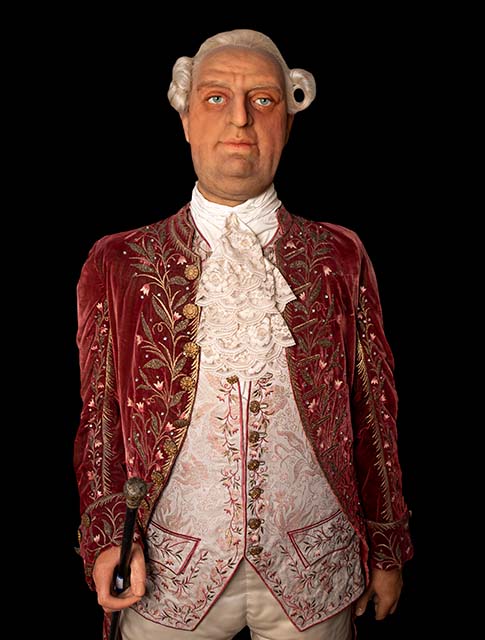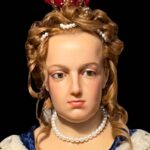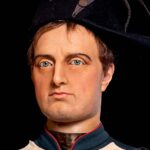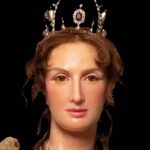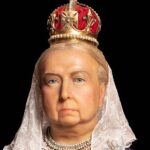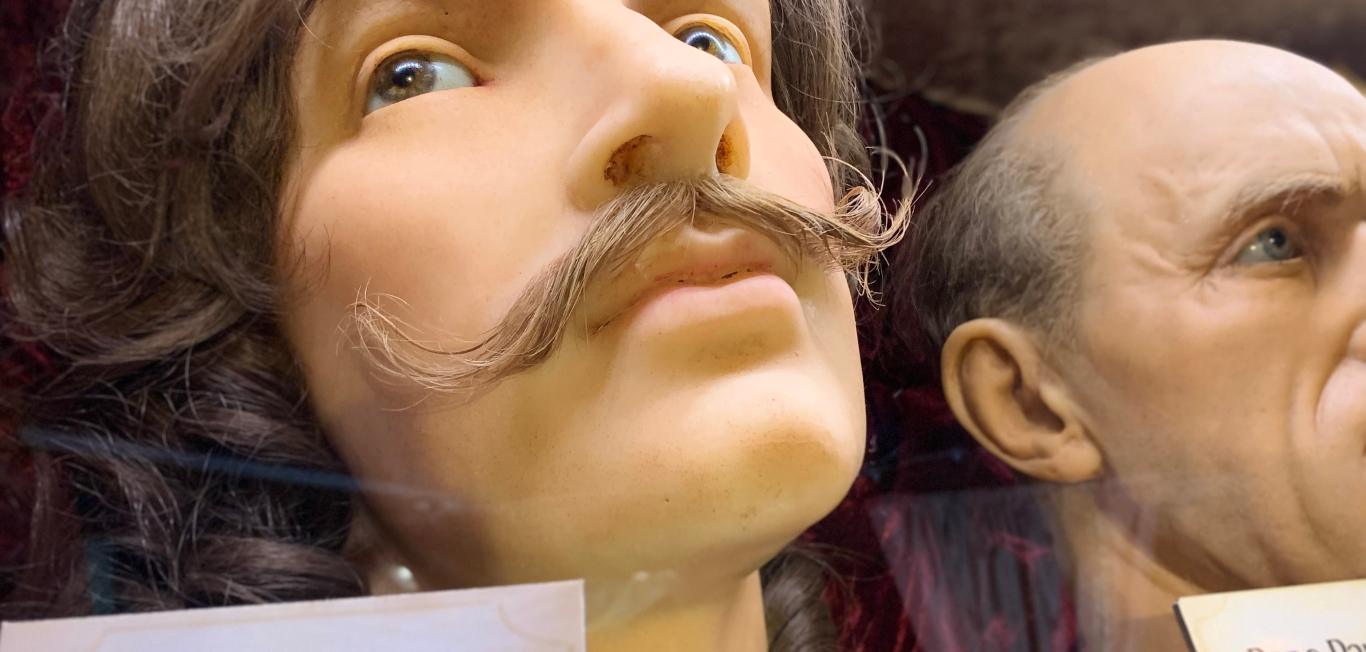The Last King of France
Louis XVI’s date of birth is August 23, 1754. He is considered the last king of France before the abolition of the monarchy that was brought about by the French Revolution beginning in 1789. Louis XVI belonged to the Bourbon monarchs, and he became the king of France in 1774, after the demise of his grandfather. His mother was Marie-Josèphe, and his father was Louis, Dauphin of France. Louis XVI had six siblings, and he was the second surviving son of his parents. Louis XVI was not seen as a potential king since he lacked the attributes of a good leader due to his shyness, and this is why his parents preferred his eldest brother Louis Duc de Bourgogne, who was charismatic. Louis’ path to becoming king came following the death of his brother and father, who were fancied to take over from his grandfather. Louis XVI married Marie Antoinette at the age of 15, and despite having marital problems, they were blessed with four children. Louis XVI’s indecisiveness hindered him from navigating France away from the financial crisis leading to a revolution that prompted the abolition of the monarchy and his death in 1793.
Biography
Louis XVI of France, also called Louis-Auguste, was born in the Palace of Versailles. He was given the title Duc de Berry at birth. His parents were Marie-Josèphe and Louis, Dauphin of France. Louis XVI of France was one of the seven children who managed to survive childhood. Even though Louis was diffident, he was strong and performed exceedingly well in his education, including in geography, language and history. His hobbies were hunting and playing with his siblings.
DID YOU KNOW?
Louis was strong and performed exceedingly well in his education, including in geography,
In 1770, when he was aged 15, Louis got married to the 14-year-old Marie Antoinette. However, this marriage was not consummated for uncertain reasons, such as Louis’ ignorance. However, they were eventually blessed with four children. Louis XVI of France became an heir to the throne after his father’s demise in 1765, and at the age of 19, in 1774, he rose to power to succeed his grandfather, Louis XV. He gained popularity after restoring the position of the provincial courts, which his grandfather had reduced.
Louis ruled weakly from the start due to his lack of firmness and decisiveness. This silent personality contributed to his inability to unite his court and hindered him from responding to those he disagreed with. As a reforming monarch, he signed the Edict of Versailles in 1787, and the radical financial reforms angered nobles after they led France into financial turmoil. Louis XVI’s time at the palace ended on October 5, 1787, when people stormed the palace, marking the beginning of a revolution. After his plan to flee Paris failed, he was captured and tried for treason. Louis XVI was beheaded by the guillotine on January 21, 1793, ending the French monarchy.
The History of King Louis XVI of France
The history of King Louis XVI of France indicates that he was born on August 23, 1754, in Versailles and died on January 21, 1793, in Paris. He was the last king of France after ascending to power in 1774 and was ousted in 1792 following the French Revolution. In 1770, King Louis XVI of France wedded Marie Antoinette, and four years later, following the death of his grandfather, he took the reins of power as king. Although he was raised as a dauphin since his father’s death in 1765, it was evident that King Louis XVI was an ineffective leader since he lacked the power and strength of character to lead his court. He led France into financial bankruptcy and was unable to restore the country’s stability since he failed to give proper support to his ministers, such as Turgot and Necker, in their efforts to restore France’s financial stability.
DID YOU KNOW?
He was the last king of France after ascending to power in 1774 and was ousted in 1792.
In 1774, King Louis XVI of France enhanced the aristocracy by giving parlements (parliament) power. This obstructed the royal power, and to some extent, historians believe this might be one of the triggers that led to the French Revolution. Charles-Alexandre de Calonne’s radical economic reforms led to the opposition of the aristocracy, which prompted Louis XVI to call for the Estates-General in 1788, thus catalyzing a revolution. King Louis XVI of France gravitated toward preserving the privileges of the nobles. Out of fear that his power was slipping through his fingers, Louis XVI opted to act by dismissing the royal ministers, including Necker, in 1789. This angered the people, forcing them to storm the Bastille. This forced Louis to move to Paris, but his resistance to adhere to the people’s demands led to his arrest while trying to escape Paris. In 1792, the Tuileries Palace was captured by the masses and militia, ending the French monarchy. King Louis XVI of France was charged with treason for resisting revolution. After being ousted, Louis XVI was known as “Citizen Louis Capet.” King Louis XVI was beheaded by the guillotine in 1793. His wife Marie Antoinette suffered a similar fate, and their child died in prison.
The Early Life of Louis XVI
In Louis XVI’s early life, he was awarded the name Louis-Auguste in 1754. He was also awarded the title Duc de Berry at birth, since he was the son of Louis, Dauphin of France. Louis XVI had six siblings and was the second son of Louis and grandson to Louis XV. During his early life, Louis XVI was neglected by his parents, for they favored his older brother, Louis, Duc de Bourgogne, who was considered intelligent and attractive. This can be attributed to the fact that Louis XVI was shy. However, his eldest brother died in 1791, at age nine.
Louis XVI was a strong and healthy child while growing up, but he lacked self-belief. He was not suited to become a king based on his attributes of being withdrawn, charmless and solitary. He was overshadowed by his elder brother, who possessed the charisma required to be a leader. However, he had a love for physical sports and locksmithing, and in most cases, he went hunting with his grandfather. Louis XVI was a studious individual, which led to him performing well in subjects such as history, geography, Latin and astronomy, and he exhibited fluency in Italian and English.
His father died in 1765, promoting him to dauphin at the age of 11. This made him an automatic heir to the kingdom. The absence of a father figure led to Louis being placed under the Duke de la Vauguyon, whose duty was to coach him on leadership. Louis XVI was ill-prepared to take the throne since Vauguyon was a conservative tutor whose lessons concentrated on religion, morality and the humanities. Louis ended up having poor interpersonal skills, which pronounced his indecisiveness. Louis was taught that timidity is a virtue, making him a silent leader who failed to reveal his true thoughts or opinions to others.
DID YOU KNOW?
Louis was taught that timidity is a virtue, making him a silent leader...
Facts About Louis XVI of France
Louis XVI attempted to reform the French government.
The French monarchy was heavily in debt and facing a number of other issues. Louis XVI tried to change France’s foreign, economic and religious policies. The Edict of Versailles, which he signed in 1787, and is often referred to as the Edict of Tolerance, granted non-Catholics in France both civil and legal status as well as the freedom to practice their religions. In an effort to reduce France’s debt, he also sought to put more drastic financial changes into place, such as new taxing methods. The nobles and parliament prevented these.
He oversaw the first Estates-General in 200 years.
The Estates-General was a legislative and consultative body made up of delegates from the three French estates; it was traditionally employed as the king’s advisory panel while having no formal authority of its own. The Estates-General was called before Louis XVI in 1789, which was the first time since 1614. This turned out to be a bit of an oversight. Forced attempts at fiscal reform utterly failed. Ordinary citizens, who made up the Third Estate, proclaimed themselves a national assembly and vowed not to leave until France had a constitution.
Louis was tried for high treason.
On October 5, 1789, the Palace of Versailles was attacked. The royal family was taken captive and sent to Paris, where they were made to accede to their new positions as constitutional kings. As they negotiated the future structure of the French government, they were essentially at the whim of the revolutionaries. After almost two years of discussion, Louis and his family made an effort to evacuate Paris for Varennes in the belief that they might gather enough support there to leave France, bring about the monarchy’s restoration and put an end to the revolution. They were recaptured, and Louis’ plans were discovered; therefore, their plot failed. This was sufficient to bring him to trial for high treason, and it soon became obvious that he would unquestionably be found guilty and dealt with appropriately.
Execution marked the end of 1,000 years of continuous French monarchy.
On January 21, 1793, King Louis XVI of France was guillotined to death after being pronounced guilty of high treason. In his last moments, he forgave those who had authorized his execution and proclaimed his innocence of the charges against him. Marie Antoinette, his wife, was executed on October 16, 1793, which was almost 10 months after. Many have claimed that Louis XVI’s death brought an end to more than a thousand years of uninterrupted monarchy, which was a crucial turning point in the radicalization of violent oppression.
FAQs
What was Louis XVI’s education?
Louis XVI received a strict and conservative education from Vauguyon, which greatly impacted his leadership. Louis studied a variety of subjects, ranging from morality, religion and the humanities. He studied geography, history, Latin and languages such as English and Italian. His tutors shaped him into an indecisive king since they taught him timidity as a value of monarchs.
Was Louis XVI a good person?
Louis XVI was not a good person since he can be regarded as a symbol of tyranny, for he was oppressive and cruel. This can be attributed to the fact that Louis and his wife Marie Antoinette lived a luxurious life and gave little attention to the needs of ordinary people. He did not address the people’s grievances, which in the long run, led to a revolution.
Why were the people mad at Louis XVI?
The people were mad at Louis XVI because they were unhappy with how he governed the country. This can be attributed to France’s involvement in civil wars and Louis’ extravagant spending that led France to a financial crisis. The country had accrued loans that accumulated huge interest. Trying to force harsh fiscal reforms using the Estates-General angered people, leading to a revolution.
Why were people unhappy with Louis XVI?
The people were unhappy with Louis XVI because of his absolute monarchy. Louis XVI had absolute control over society by embracing feudalism, where individuals are placed under different estates of power, such as nobles, clergy and peasants. People were unhappy, started questioning his leadership and wanted a country based on equality and liberty.
